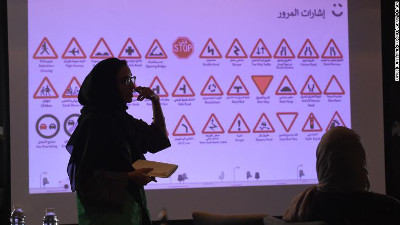|
Ride-hailing Companies Recruiting Saudi Women Drivers
January 11, 2018 Two taxi alternatives are looking to make it big in Saudi Arabia, with women drivers. The Kingdom recently changed decades of law and practice and allowed women to drive. In a decision announced in October 2017, Saudi King Salman bin Abdulaziz said that women could begin achieving a driver's license in June 2018. Now, Uber and Careem, two ride-hailing applications, are recruiting female drivers. According to some estimates, up to 80 percent of the Saudi passengers of Uber, a U.S.-based global company, are women. Careem, a similar company based in Dubai that operates in 13 countries in Africa, Asia, and Middle East, says that women make up 70 percent of its customers. 
Careem representatives said that they had already received thousands of applications from women wanting to drive; the company has run several training courses for prospective drivers and aims to have 10,000 female drivers by the time the prohibition ends in June. Many Saudi women already have driver's licenses, having obtained them in other countries. Uber is soon to follow suit, the company said. Training sessions have operated in some large cities, including Riyadh, the capital, and Jeddah. The training covered not only road laws but also customer service standards. Uber says that its female drivers will be called "partners"; Careem's name for its female drivers is "captains." One that hasn't changed is the country's labor laws with regard to female employees. Unless women work in a few excepted fields–such as medicine, charity, some retail jobs, or in family business–they cannot work between sunset and sunrise. What is not yet known is how strictly Saudi officials will enforce the law with regard to female drivers working at night. |
Social Studies for Kids |
Social Studies for Kids
copyright 2002–2019
David White




